October 7, 2016
Stepping Stones and The Journey
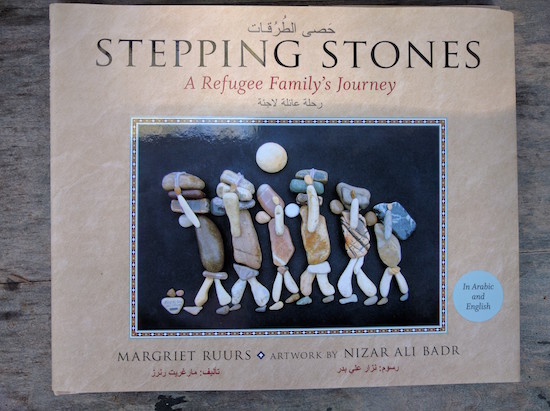
It’s not hyperbole to state that Stepping Stones: A Refugee Family’s Journey, by Margriet Ruurs and Nizam Ali Badhr, is one of the most extraordinary picture books I’ve ever encountered, a book whose incredible origin story is as remarkable as its execution.
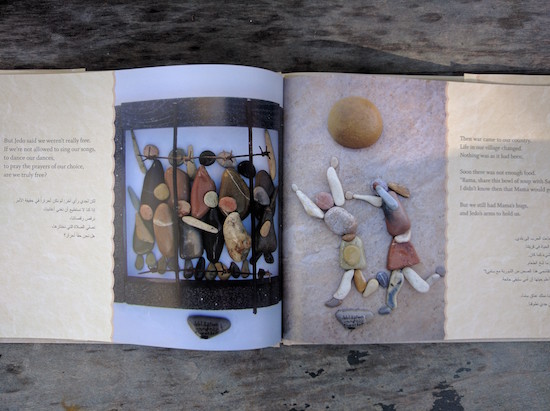
The story begins with Syrian artist Nizar Ali Badr, whose evocative scenes created from stones became popular on his Facebook page. Author Ruurs was inspired by the images and eventually managed to contact Badr, and plans were made for them to create a book together. Ruurs secured a contract with Canada’s Orca Books, who were on board with her mission that proceeds from the project be donated to an organization supporting refugees.
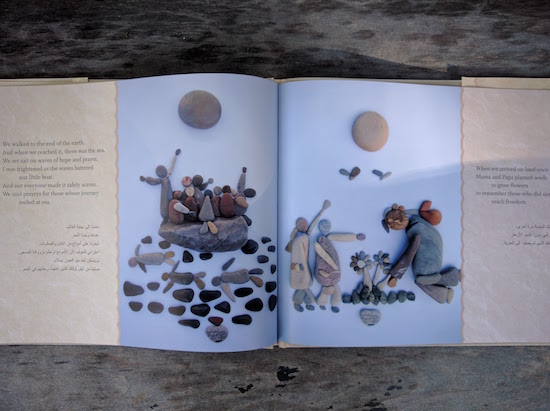
Badr’s illustrations are incredible. I never would have imagined that stones could be so creatively arranged to convey action, emotion and narrative. In her introduction to Stepping Stones, Ruurs tells us that Badr, who lives in Latakia, Syria, cannot afford the glue that would render his pictures permanent—and now his images have been collected in a book that people are going read on the other side of the world.
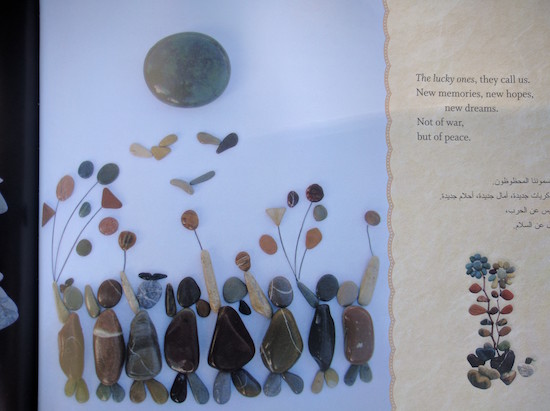
Ruurs’ story is beautifully told, narrated by a young girl whose family is forced to leave the only home she’s ever known, a place of family and friends, memories and familiar scents and sounds. They join, “A river of strangers in search of a place to be free, to live and laugh, to love again. In search of a place where bombs did not fall, where people did not die on their way to market. A river of people in search of peace.” Her text also appears on the page in Arabic, translated by Falah Raheem, making the book accessible to more readers and bring another player into this gorgeous literary transnational collaboration, a book that is very much of this moment and yet timeless at once.
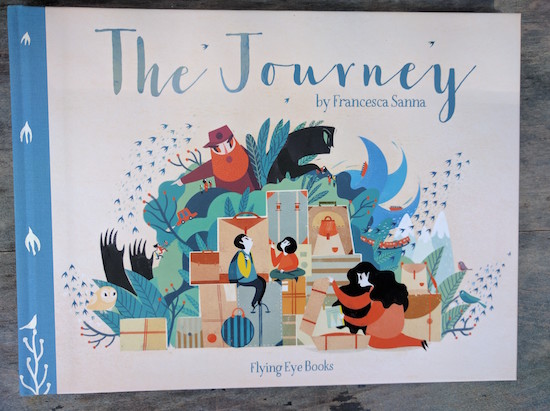
In her book, The Journey, Italian illustrator Francesca Sanna tells a similar story in a different way, a way that in narrative and images recalls fairy tales, Grimms, and an entire canon of stories about people fleeing danger, heroic quests, courage, monsters, danger in the woods, and hope out of the darkness.
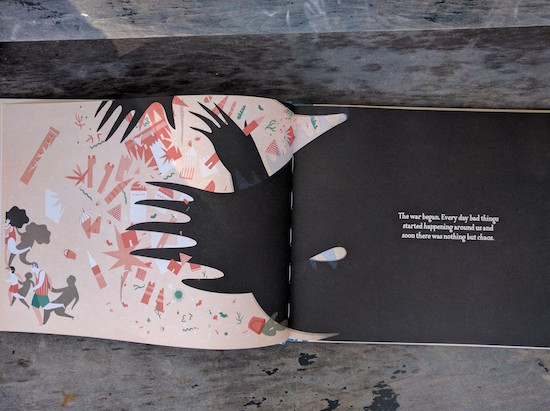
Sanna writes that her story is not meant to represent one particular kind of refugee story, but that her book is a collage of different experiences she learned about through her work at a refugee centre in Italy. The stories themselves become a jumping-off point for a narrative that is not necessarily literal, and neither are Sanna’s illustrations, which are dark and compelling (although my daughter as requested that we not read this book at bedtime…)
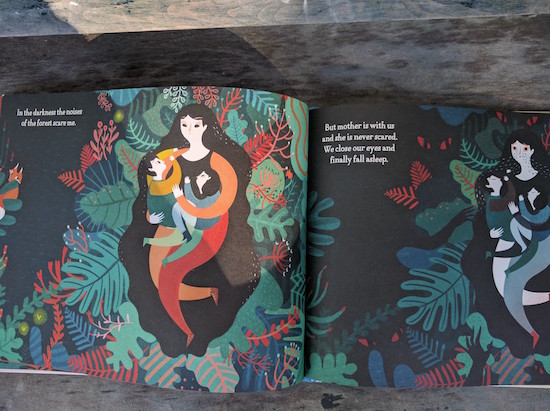
By car, on foot, by sea, and then by train, the family makes their way, encountering threats along the journey and also help from shady characters. The discerning reader’s heart breaks for the mother.
As with Stepping Stones, The Journey ends on a hopeful note, although the journey isn’t over yet: “I hope one day, like these birds, we will find a new home. A home where we can be safe and begin our story again.”
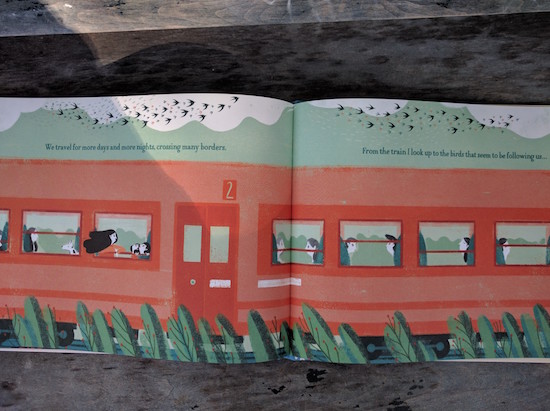
Reading these books, it occurred to me that it’s not just children who require stories like these in order to better understand current events and the world around us. Politicians, and bigots, and other grownups with hardened hearts who’ve forgotten how to be human—these are the readers who need to read these books in order to remember that people are people, some things are universal, and also that books are amazing.






Gorgeous! Thanks for bringing these books to our attention. So topical.
P.S. I don’t think that bigots and people with hardened hearts read books.
Nope, but imagine what would happen to their minds if they did?
Thanks for reading.
I’ve totally fallen in love with this book and the artistry of Nizar Ali Badr. I’m going to promote it here in France. I’ve written a blog post on the subject. Have a look. Thanks again for mentioning this.
https://julietinparis.net/
Cool. Am doing a unit on Argument and Persuasion with my grade 12s and we’ll be discussing the refugee crisis. Am using essays — of course — and a virtual reality film through the (very cool) Sidra project (http://thesidraproject.ca/about/). But will def add these two books to the mix! Sometimes kids’ books make the most powerful arguments!
So glad you love the book as much as I do. Thank you for sharing it with your readers! We’re having a book launch party tomorrow here on Salt Spring Island with your recently arrived refugee families as guests of honour.
Recently arrived refugee families on Salt Spring Island?? Wow. Now that’s a voyage. After the violence of the Middle East, they must think themselves to be in some sort of paradise.
Indeed!